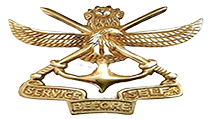Commandant's Opening Address
OPENING ADDRESS TO 22nd COURSE by Rear Admiral BA SAMSON Commandant NDA- 11 July 1959
Gentlemen,
I have much pleasure in welcoming you to the National Defence Academy.
What I am going to say to you today in this address of mine is not only of interest to you in your first term, or during the rest of your stay in the Academy, but right throughout your service career. And so, this address will be printed in the form of a pamphlet, which will be distributed to each one of you afterwards, and I suggest that you keep it and read it again and again during your stay here, and if I may say so, during your service career afterwards. You will find that as time goes by you become a more senior officer in the Armed Forces, all the things I am going to tell you today are truths which you, yourselves will appreciate and understand by experience.
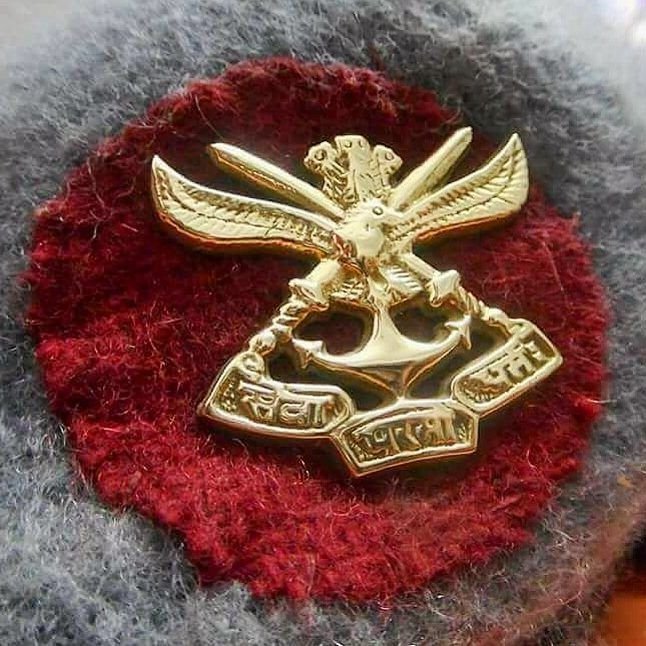
Gentlemen,
I have much pleasure in welcoming you to the National Defence Academy.
What I am going to say to you today in this address of mine is not only of interest to you in your first term, or during the rest of your stay in the Academy, but right throughout your service career. And so, this address will be printed in the form of a pamphlet, which will be distributed to each one of you afterwards, and I suggest that you keep it and read it again and again during your stay here, and if I may say so, during your service career afterwards. You will find that as time goes by you become a more senior officer in the Armed Forces, all the things I am going to tell you today are truths which you, yourselves will appreciate and understand by experience. Also, if you try and become efficient, hard working and knowledgeable, you will find an honoured position in this rapidly advancing modern world. However, to be a worthwhile member of this brotherhood of the Indian Armed Forces, which has an international reputation second to none, very high standards of knowledge, behaviour and conduct are necessary. I must, therefore, tell you straightaway that from now on it will be necessary for you to work hard and to apply yourselves diligently to learn all you can on how to be a good officer.
For many of you, the National Defence Academy will mean a complete change of life and outlook; a number of you have never left your homes before, nor perhaps did you want to do so. Nevertheless, all of you, I have no doubt, have been filled with a sense of excitement at the prospect of a new experience, of a new life. But once the novelty has worn off, some of you may start feeling homesick and yearning for your families. Then is the time when you will be tested, and you will have to resist the feeling of loneliness and the sense of loss; you will have to learn to stand on your own feet without your parents or friends to help you. We are your friends; come to us and we will help you, but before you do so, you should have tried and helped yourselves and solved your own difficulties. And when you overcome this feeling of loneliness, this homesickness and such difficulties that you may have, your first big battle in life and in the Armed Forces will have been won.
I am quite sure that most of you must have a little knowledge about the National Defence Academy and what exactly you will do here during your three years of training. I have no doubt that you must have read of the Academy and have had information concerning it from friends who have been, or are still, cadets here. But I feel certain that most of you have an erroneous impression about this place. And so, I shall now tell you a little bit of the history of the Academy, what the aim of training is, your general programme during the next three years, and to emphasise some of the important aspects of your training, in particular those which concern your character which must be developed before you can become a worthwhile officer of the Armed Forces.

HISTORY
I do not propose to tell you in detail of the history of the Academy, but each one of you make it your business to know the history of this institution, how it was conceived, the vision behind it, the first Indian Officer to be commissioned from it, and so on. Here in Kharakvasla, we started in Jan 1955 with the 13th course.
DURATION OF TRAINING
As you know, the course here is for three years. Briefly, the first two years are devoted principally to academics, of which I shall say more later, with a certain amount of service subjects such as drill, physical training and equitation. In the third year, some emphasis will be laid on specialist training for the Service of your choice. After you graduate from this Academy, you will proceed for further training to the Military College, or your training Ship in the fleet, or the Air Force College.
AIM OF TRAINING
What is the aim of training here? It is to ensure that each one of you will acquire the mental, moral and the physical attributes essential to your progressive and continued development as an officer of the Armed Forces, and that you will gain the basic military knowledge and educational background essential to all officers, whatever your Arm or Branch or Service may be. You may not fully understand what I have just said, but in order to achieve our aim, it will be our intention to:-
(a) Instill in each one of you the qualities of leadership and to give you a high sense of duty, honour, purpose and service;
(b) Give you a sound general education, both Service and academic;
(c) Bring you up to a high standard of physical fitness and endurance;
(d) Lead you to achieve an enthusiasm and an ability to think which will be sufficient to ensure your own future and for the unaided study of military subjects and of general world affairs; and
(e) Make each one of you conscious of the responsibilities of holding a commission in the Armed Forces

GENERAL EXPLANATION OF AIM OF TRAINING
Now all that I have just said sounds very nice, but what does it all mean? Well, I shall now try and explain very briefly. But, first of all, let me make it quite clear that it is not our aim to make you in these three years into the finished product, be it a soldier, a sailor or an airman; we shall not teach you the details of your Service profession here, but we shall teach you the principles of your profession and these are vital which you must know one hundred percent.
LEADERSHIP
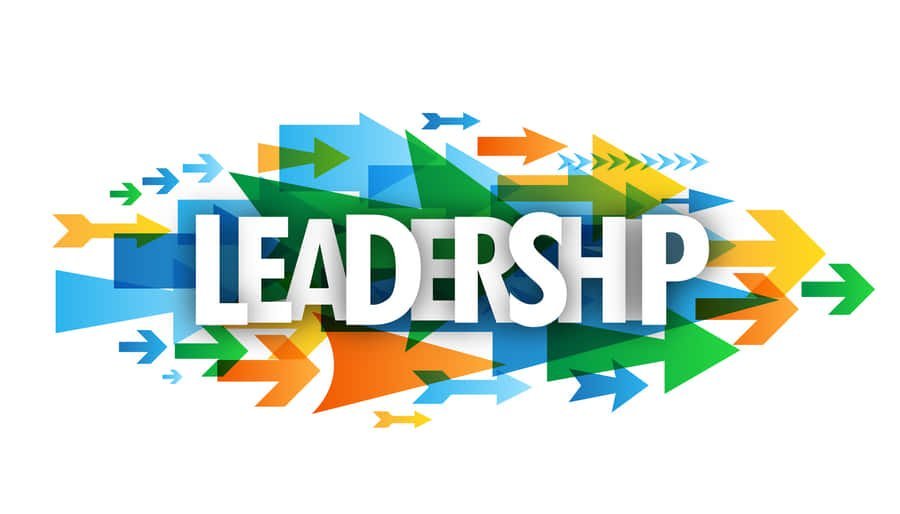
Leadership can briefly be defined as that quality in an officer which instills in his men a complete feeling of confidence in him and the willingness to follow him anywhere, at any time. But in order to instill confidence in your subordinates, a leader must have confidence in himself; and in this he can only have if he has a thorough knowledge of his profession and a sound educational background. We shall try and equip you with the self-confidence and education to launch you on your career as a leader. To do so:-
(a) We shall make you robust in mind and body and have the ability to lead a spartan life, so that when untrained minds and bodies flag through fatigue or weakness, you will show resourcefulness.
(b) You will receive a good deal of academic instruction so as to inculcate in you a broad outlook, a sense of inquisitiveness, the ability to grasp a point with its essentials, and an interest further afield than your immediate surroundings.
(c) As a future leader, you will be expected to think clearly and to express yourself lucidly both verbally and on paper. So from the very beginning this will be impressed upon you – BE CLEAR BE BRIEF.
(d) We try to give everybody some chance to practice leadership before he leaves. Enthusiasm is the first step towards leadership. Therefore, you must always put enthusiasm in your work and play. Remember that those who expect to command must first learn to obey. Therefore the discipline here is very rigidly enforced; it is extremely strict. If you are so unfortunate as to receive punishment it is to be accepted unflinchingly, like a man.
(e) You will be taught from the beginning that to get down to work with your hands, far from being undignified, is the privilege of a leader; for we never ask our subordinates to do what we cannot do ourselves.
(f) You must learn manliness and comradeship. Always be friendly and prepared to help another chap, provided help is fair and above board. Never shift the blame to others. Do not revel in your own company.
(g) As an officer, you will always be expected to set an example and for this you must be a Gentleman.
(h) You must always live by the motto which you will carry on your arms: ”SERVICE BEFORE SELF”. Carry this in your minds at all times.
DISCIPLINE
I think there is a general misapprehension in the minds of most lay people concerning discipline in the Armed Forces. They appear to imagine that it is something barbaric, cruel and extremely hard on the personnel receiving the orders. You must clearly understand right from the beginning what discipline clearly means and if I may say so, discipline is much harder on those in authority, or should be, than on the men. Discipline is founded on mutual trust between the officer and his men and is based on pride in your unit, regiment or service and your country; as Lord Wavell stated: “Discipline is teaching, which makes a man do something which he would not unless he had learnt that it was the right, the proper and the expedient thing to do. At its best, it is instilled and maintained by pride in oneself, in one’s unit, in one’s profession; only at its worst by a fear of punishment.” In the Armed Forces, it is necessary that discipline of the highest order is maintained, because it is in time of battle that a man is most tested, and battles are only won by disciplined and well trained men, who will instantaneously carry out the orders of a resourceful and good leader. It is for this reason that, during your period of training, we try and impress upon you, even by punishing you, sometimes quite strictly in cases of breach of discipline, so that you will understand and appreciate the necessity for good discipline.
SELF-DISCIPLINE
There is one aspect of discipline I should like to emphasise to you, which is most important and that is, SELF-DISCIPLINE. India won her freedom after a long and hard struggle; we all wish to retain that freedom. But what does FREEDOM mean? I am afraid that the definition of the word “Freedom” tends to be misinterpreted generally, and particularly by the youth of the country. The general interpretation appears to be that freedom means LICENCE – licence to say and do what one pleases. That is entirely incorrect. It means SELF-discipline; it means that one must be careful in what one says, to make constructive criticisms and not merely say and do things which will harm our institutions, our Government or our country. By that way, we shall never develop India into a worthwhile nation, or in fact, be able to retain our freedom. You must learn to be a good citizen of this great land of ours, and you, in the Armed Forces, who are going to be leaders and officers of your men, must develop this self-discipline, so that you will typify all that is best in our country.
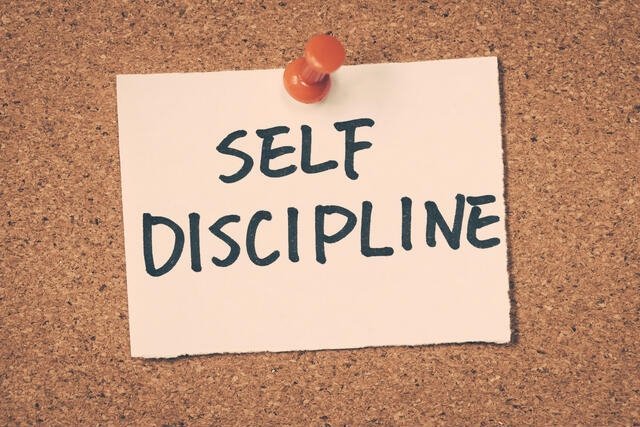
THE QUALITIES OF A GENTLEMAN
I spoke earlier of the importance of an officer being a Gentleman. What does this mean? Does it mean wearing fine clothes, spending a lot of money and having a wonderful time? It certainly does not. It means self-respect, dignity and a code of behavior, which is immediately admired and respected by all, particularly by your men. A Gentleman does not lie, he does not cheat, he does not steal; he never lets his comrades down by insinuation, by accusation, or by behaviour that is improper or immodest. A Gentleman has consideration and respect for others, especially for his elders, for ladies and children, and for his men and others who work under him. He must have compassion and sympathy and a code of conduct, which is at all times above reproach. He does not use foul language, he does not get unnecessarily excited, he never humiliates his juniors or his men; he is fair and just and strict in imposing punishments and he has a sense of humour. These make up the qualities of a Gentleman, and I would like you to know that your men, be they soldiers, sailors or airmen, will immediately recognize these qualities in you if you have them; but will even more quickly know if you do not have these qualities. When that happens, you will have lost their respect, and you can never be their leader. It is, therefore, absolutely vital that in developing your qualities of leadership, this aspect of your character is never forgotten.
EDUCATION – SERVICE AND ACADEMIC

I want to now tell you something about the educational training that you will receive here. It is quite likely that you might have been taken unawares by the extent of academic studies that you are faced with here. I have no doubt that many of you imagine that on joining the Armed Forces, you will be leaving your books and will be spending your time here and later in the Service on purely outdoor life, learning how to use a rifle, to ride, to swim, to glide, to sail, and all the other activities associated with the Armed Forces. Well, I must disillusion you and here is a big shock for you. I want to emphasise that study of academic subjects in this institution forms the main basis of your training as future officers. The variety and of the number of subjects that you will study here will require from you a new approach to learning and special methods of study, quite different from what perhaps you might have been used to in your school and college life.
Perhaps the most important thing that is different and which you must remember is that here you must always be regular in your studies; you cannot leave preparation to the last moment, because if you do, you will find that you will be unable to cope with the study in a satisfactory manner. You will find that a great deal of emphasis is placed here on your competence in English, Mathematics, and Science, and this is as it should be, for English is the medium of instruction in the Academy and will be the medium of communication between you and your colleagues and superior officers for quite some time to come. Unless, therefore, you are able to express yourself clearly and precisely you will develop habits of vague thinking and a confused mind. Similarly, in this technological age, the importance of Science and Mathematics cannot be over emphasized. I must warn you now that if you want to become an efficient, knowledgeable and a progressive officer, you must ensure that your interest, knowledge and competence in these subjects are effective and up to date. But although these three subjects are extremely important, I wish to tell you that it does not mean that the other subjects like Social Studies, Geography, Languages and Engineering are in any way less important from the point of view of your training. These courses have been designed with a special purpose – that you should be able to apply the knowledge and disciplines that you gain from these subjects to your day to day life and to your progressive development. For the first two terms, all of you will be learning Hindi, and during your second term you will be called upon to take a preliminary Hindi test. If you succeed in this test, you will be eligible for study of a foreign language from the third term onwards. Those of you who do not succeed in the preliminary test will be given another chance in the third term and if you succeed, then you will still be allowed to take up a foreign language from your fourth term. After that, there is no opportunity for you to start learning a foreign language. Now you must realize that for a Service Officer today, the study of a foreign language is essential for his future efficiency. In fact, an officer of today is expected to be multi-lingual in as much as he is not only to learn English and his mother tongue, but has also has to be competent in Hindi and at least one foreign language. There are six foreign languages- Arabic, Chinese, French, Persian, Russian and Spanish – which are taught here, and they have been chosen for their international and strategic importance. I expect you to pay adequate attention to the learning of these languages. I hope you will realize that the opportunities offered to you for academic studies in this institution are far greater than in any other educational institution in the country. Take full advantage of them in your own interest. In any case, I shall not tolerate failure in any subjects that you study, and I wish to make it very clear that while the Instructors are here to help you in your difficulties and also to render special help to weak cadets, it is you and you alone who must develop the habit of self-study which will enable you to rely on yourselves and ensure your progressive, intellectual and cultural development. In this connection, we have a first class library here and so make use of it; learn for yourselves and develop within your selves the spirit of discovery by reading and studying.
PHYSICAL FITNESS AND ENDURANCE
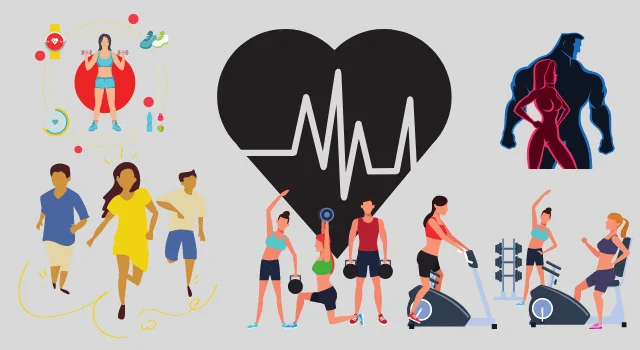
It is of the highest importance that an officer is one hundred percent fit physically. Remember that the whole reason for your existence in the Armed Forces is for the one day when war comes. I sincerely hope that it will not be your lot to go to battle, but should the time come, we must be fully prepared. Service personnel will have to undergo tremendous physical strain and stress during war and, therefore, you must appreciate now the reason why we insist on high physical standards and to try and develop your physical capacity and endurance. Remember that you must be capable of carrying out the same tasks which you will one day ask of your men
BEHAVIOUR AND OUTLOOK
Having told you what our aim of training is, here are a few hints on how you should behave and what your outlook should be:-
(a) This life is a great change for you but must adopt it without reservation and with enthusiasm. You may find it difficult at first, but persevere, and you will soon begin to like it.
(b) Each one of you must make himself acquainted with the Standing Orders and obey them implicitly; for ignorance of orders is never accepted as an excuse in the Services.
(c) There are also customs born of tradition, with which you must identify yourselves immediately.
(d) Then we have a Code of Honour from which we exempt you in your first term, so that when it applies to you there will be no doubt in your mind. It lays down that lying, cheating, theft and letting down one’s comrades or this institution by insinuation, accusation or behavior are not acceptable. The code gives a cadet a chance to confess his error and to accept his weakness before his judges who are all cadets, elected by the cadets; but it is not to be used as a medium for escape from deliberate crime. The enforcement of the Honour Code, however can only work properly when all cadets hold such defects as contemptuous and unacceptable. Therefore, you are to realize fully your duty in upholding the code.
(e) Punctuality will from now on be your creed, not only on parade but off parade, at games and social functions. Remember that there is no harm in arriving ten minutes early, but to arrive half a minute later is shameful.
(f) You will take meticulous care to be perfectly turned out at all times. The slightest defect in your turn out on parade will lead you into instant trouble. Untidiness off parade, or in “Mufti”, will simply not be tolerated. You must remember that from the day you come here you are representatives of this Academy and any individual letting the Academy down can expect little sympathy.
(g) A confident mind is necessary. If you lack confidence in yourself, you must make a conscious effort to attain it. Remember that after all, you have proved successful in competition before you came here; so you must have it in you. All it requires is for you to have a responsible attitude towards your new life and to remember that you must be worthy to lead other men at very critical times. Be relaxed and think clearly, whatever the situation you have to face. An officer has to rise above the situation and behave nobly at all times.
(h) Remember always to try and be a Gentleman; and I have already explained to you what it means and what it implies.
(i) All this does not mean that you should be stiff, awkward or unnatural; a sense of humour is a very good asset and you must develop it. We want you to express your views freely; in fact, we encourage people to think and to argue logically. Express your views whenever you feel that you have a good point to make, but do not argue without foundation and do not get the reputation of being ‘long-winded’.
(j) We do not encourage – in fact, we hold in contempt – selfishness, jealousy and exhibitionism. Such weaknesses of character as blaming others ‘to get yourself out of a scrape’, failure to face up to physical or mental hardship and the lack of officer-like qualities will at once be noticed.
(k) Cadet Orderlies will do all your domestic work for you, but you too must learn to do for yourselves and ensure you know how to look after your cabins, your clothes, equipment, leather and brass articles.
RELEGATION AND WITHDRAWAL
Now that you have an idea of what we want to make of you, you will realize why very strict standards are applied here. Our aim is naturally to have as few failures as possible and for everyone to pass; and it is fully realized by the staff that you cannot always achieve the required standard without proper guidance. You will, therefore, find that every one is out to help you improve, so that you not only reach the minimum standard but acquire a high standard all round. My staff and I will watch you constantly; they will advise you individually as to what progress you are making and how you can improve. If you want help or do not understand something, ask one of your officers or senior cadet appointments. There is no shame in not knowing; the shame lies in pretending to know when you do not. Leadership in battle involves the nation’s safety and the lives of other men; no nation can take a risk and yet the standard required is well within the reach of any young man with grit and average ability. But, if in spite of our best efforts, we find that somebody is not up to the standard, then, in the interests of the Service, that gentleman would have to be “withdrawn”. If, however, we feel that a little extra time is required for the person in question to come up to the required standard, there is a system by which a cadet is “relegated” to the term below. If anyone does not maintain the required standard in any subject, he is likely to be relegated. If he does not show improvement even after relegation, then we do not normally retain him. Remember that if a cadet is very backward, he may be withdrawn without relegation. There are two common misunderstandings I wish to dispel. Some cadets, who do badly, take it into their heads that some person or another is out to down them. Our system of assessment is such that this is not possible; because every conclusion is based on several opinions. This also ensures that no one receives preferential treatment. It is in our own interest that all of you pass. Remember that we do not assess you by the results of one examination; you are under observation and test during the whole time you are in the Academy, and your fitness or otherwise, academically or in other qualities, will be judged accordingly. Please realise it is up to you to help yourselves. We do what we can to be fair, just and helpful; but the honour and welfare of the country and of the men that you ultimately have to lead must naturally be our first thought.
GENERAL
Games: Everyone is expected to play team games. There are adequate individual games too, for those who have the aptitude or the prowess for them. Performance is not all-important, everyone is not a skilled performer; but what we do take a note of is the interest you show, your progress and the spirit with which you perform. Here, not only are games meant to develop a sportsman’s instincts within you, but they help you to keep physically hard and fit. Games are also good training for the field of battle with its ups and downs. The progress of the team as a whole is made possible by the total progress of the individuals. Officers must play games with the men and organize games for them; you will get to know and understand them better and they will have greater faith and confidence in you; therefore a proper knowledge of the game is most important. People the world over respect no one more than a keen sportsman.
Clubs: There are a variety of activities which provides you with mental and physical recreation which you can, later, turn into interesting hobbies. This facility is provided with the intention of giving you an interest in other things than just your work, and I can assure you that you will be grateful in later life for this chance. Now is the time to acquire a working interest and knowledge in some of the many subjects from which you can choose. You are limited to joining a maximum of two. Although credit is given to those who produce good results in these activities, I would beg of you not to join any club or hobby unless you are prepared to take a whole-hearted interest, to make a real contribution to its interests and activities.
Cinema, Canteen and Shops: Facilities exist on our premises for these forms of relaxation, but I would advise those of you who cannot afford them not to indulge too deeply in them as they involve spending money. This may be the first time for many of you when you can spend money at your own discretion; it may, therefore, be the place where you will form your first habits of spending or saving. While everybody hates a miser (one that hoards just for the sake of saving money), I would advise you, whenever you spend money on anything, to ask yourself the simple question: “Am I deriving real value out of it?”
Conditions of Living: You will find that you are living here under conditions of comparative luxury and comfort. You must not be under any misapprehension on this subject; the whole object of this apparent lavishness is to ensure that you will learn to live in your Messes decently and with dignity; but I warn you that during your career in your respective Services, there will be many occasions when you will have to live under conditions of extreme hardship and austerity – either in tents, in ships or in barrack rooms at Air Stations.
Politics and Loose Talk: Here, you may hold whatever views you wish, but you are not to indulge in propagating political or religious ideologies or participating in any matters pertaining thereto. Of religion, it was once said by an eminent writer: “Most of us have sufficient religion to hate but not enough to love.” What your political and religious convictions are, what your caste or creed is, where you come from, make no difference to us or in the Services. We, officers, should be at all times above that. Gentlemen of any particular state, sect or creed herding together become quickly noticeable. Avoid this and try to take the chance you have here of knowing comrades from all parts of the country. I would ask you to take note of the inspiring and pertinent words by Pandit Jawaharlal Nehru, our Prime Minister, which you will find inscribed at the entrance to the Sudan Block. They are:
“WE MUST ALWAYS REMEMBER THAT OUR GREAT NATION CAN ADVANCE ONLY IF WE ARE UNITED. WE HAVE MANY BIG STATES, RELIGIONS AND COMMUNITIES BUT THEY WILL ALL WEAKEN THEMSELVES IF THEY FORGET THAT THEIR PROGRESS DEPENDS ON UNITY AND COOPERATION. OUR ARMY, OUR NAVY AND OUR AIR FORCE DRAW THEIR MEN FROM ALL PARTS OF THE COUNTRY, AND ARE A SYMBOL OF OUR UNITY AND HOMOGENEITY. I WISH ALL OF US COULD IMBIBE THAT SPIRIT.”
Religion: Religion is entirely a personal matter, and we shall not interfere in any way. However, I must make it clear that your religious pursuits cannot be allowed to interfere in your day-to-day training. But may I suggest to you that you should give some thought in your own time and in your own hearts to this question of religion, of your faith. It is curious, but true, that men all over the world turn to God in times of stress and in battle, to obtain consolation and strength; and you will find that in your day-to-day matters, having faith in your particular religion will help you considerably, not only in carrying out your duties efficiently and with a clear conscience, but much more important, to enable you to live like a Gentleman. After all, no matter what the religion may be, the basic principles of what is right and wrong are the same and they teach one to live clean, healthy, sane life with understanding and compassion for your fellow men — an attribute so necessary in an officer.
CONCLUSION
In conclusion, Gentlemen, this is just the beginning for you. Work hard and play hard, so that, when you find yourselves going to different Services, you will have achieved the qualities of discipline, discretion, punctuality, confidence, cooperation and service. They will stand you in good stead as a soldier, sailor or airman. You must carry confidently your share in that brotherhood of arms, the Defence services, and you will only be able to do if you have firmly inscribed not only in your minds, but in your hearts, the inscription on the wall of the Library, which is the pride of every officer in our Forces to observe at all times to the last letter:-
“THE SAFETY, HONOUR AND WELFARE OF YOUR COUNTRY COME FIRST, ALWAYS AND EVERY TIME. THE HONOUR, WELFARE AND COMFORT OF THE MEN YOU COMMAND COME NEXT. YOUR OWN EASE, COMFORT AND SAFETY COME LAST, ALWAYS AND EVERY TIME.”
